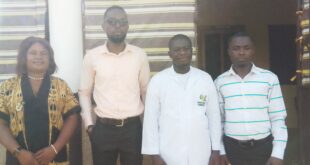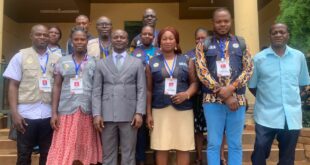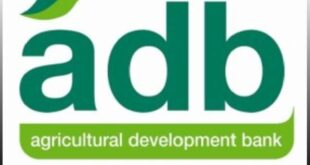The Minister of Food and Agriculture, Dr Owusu Afriyie Akoto, has held high level meetings with the Heads of all the UN Agencies to discuss investment opportunities in Ghana’s agricultural sector.
He has also held a separate meeting with the Director-General of FAO, Dr. Qu Dongyu.
Discussions during the meetings centred especially on what the Minister was doing in Ghana to bring about transformation of the economy and what FAO as a UN body, can do to support the West African nation’s agricultural agenda.
The meetings were held in Rome, Italy on Monday, February 10 to Thursday, February 13, 2020, on the occasion of the 43rd Session of the Governing Council of the International Fund for Agricultural Development (IFAD) and Food and Agriculture Organisation (FAO) of the United Nations (UN).
Dr. Afriyie Akoto made a request for support towards the implementation of one of Ghana’s flagship policies, Planting for Export and Rural Development (PERD).
PERD seeks to expand the country’s tree crops export capacity.
“Basically, Ghana is a mono crop economy; cocoa has been the dominant crop for the last 130 years and we are trying to change that by diversifying, selecting six other tree crops for rapid development,” Dr. Afriyie Akoto emphasized.
The PERD programme is aimed at diversifying Ghana’s economy from cocoa as the only major agricultural export commodity, by investing in six other tree crops namely Coffee, Shea, Rubber, Cashew, Oil Palm and Coconut.
The Minister expressed the optimism that with his vast experience in rural development, having served as the Vice Minister for Agriculture and Rural Development, Dr. Qu Dongyu, is in the best position to help Ghana develop its agricultural potentials.
“China has the biggest rural agricultural economy in the world and with Dr. Qu Dongyu having served in that capacity for such a long time, his portfolio was to increase the economic situation of rural folks so I have no doubt at all about his ability to support us in that direction,” according to him.
The Minister further pointed out that effective implementation of the PERD programme require will require a budget of over $40m Dollars which will go into resourcing six selected research institutions in the country to be able to produce adequate materials to meet our target.
The Director-General of FAO on his part gave the Minister the assurance that the organization’s Investment Centre will liaise with the Ministry to conduct feasibility studies on how to secure donor funding for the programme.
 Home Of Ghana News Ghana News, Entertainment And More
Home Of Ghana News Ghana News, Entertainment And More





